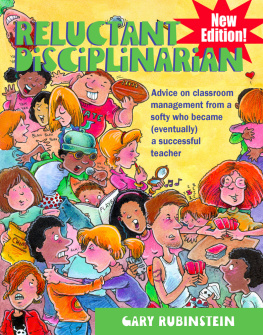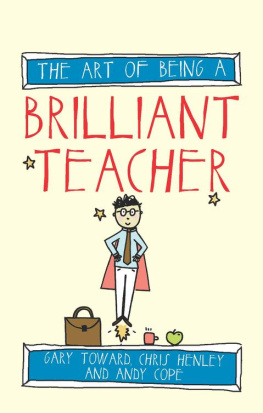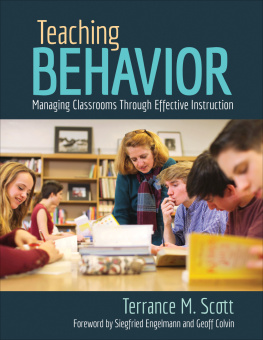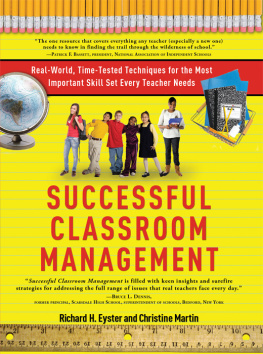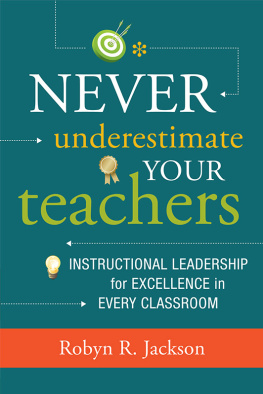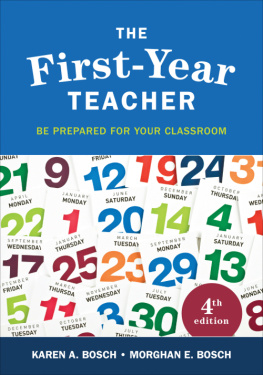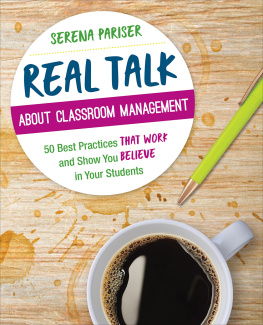

Copyright 2010 prufrock press Inc.
ISBN-13: 9781-61821308-2
No part of this book may be reproduced, translated, stored in a retrieval system, or transmitted, in any form or by any means, electronic, mechanical, photocopying, microfilming, recording, or otherwise, without written permission from the publisher.
At the time of this books publication, all facts and figures cited are the most current available; all telephone numbers, addresses, and website URLs are accurate and active; all publications, organizations, websites, and other resources exist as described in this book; and all have been verified. The author(s) and Prufrock Press make no warranty or guarantee concerning the information and materials given out by organizations or content found at websites, and we are not responsible for any changes that occur after this books publication. If you find an error or believe that a resource listed here is not as described, please contact Prufrock Press.
 | Prufrock Press Inc. P.O. Box 8813 Waco, TX 76714-8813 Phone: (800) 998-2208 Fax: (800) 240-0333 http://www.prufrock.com |
For my parents
The Accidental Teacher
Not every motive is a pure motive
The Accidental Teacher
Until I was 21, I never gave much thought to the question, What do you want to be when you grow up? My mother always said I would be a lawyer, so who was I to argue?
As my college had no pre-law program, I majored in the subject I liked most: math. But as graduation neared and law school applications cluttered my dorm room desk, I realized that I didnt want to study law. I was tired of writing papers and listening to lectures. Rather than learn more about life, I was ready to live. Living, however, required finding a job and deciding on a city in which to live.
My friend Eric, who was having similar reservations about law school, presented me with a flyer for the one-year-old Teach For America program. Teach For America (TFA) recruits recent college graduates ones who have not majored in education to teach in rural and inner-city schools throughout the country. Like a domestic Peace Corps, TFA members commit to serving for two years wherever TFA places them. The philosophy is that these non-career teachers will become lifelong supporters of public schools after they go on to pursue other careers.
It will be great, Eric assured me. Well both move down to someplace like Mississippi. Well live by the school in a cheap apartment, get to know everyone in town, and teach the kids.
For me this was the perfect diversion. I was not a stranger to teaching, having worked as a math tutor since I was a junior in high school and also, for two years during college, as an instructor for an SAT preparation course. I enjoyed teaching and felt I had an aptitude for it. By joining TFA I could do something good for society while simultaneously getting someone else to tell me where to live and where to work.
I felt I had an aptitude for teaching.
Eric never applied. TFA was just a passing whim for him, but he had made it sound so appealing that I decided to apply anyway. Though the application was reminiscent of the law school applications I had just discarded, I considered it a good omen that I found the Why do you want to teach? essay much easier to write than its Why do you want to be a lawyer? counterpart.
That summer, I was off to the TFA summer institute, a seven week boot camp for new teachers. At the institute I met an incredible assortment of people. Talking with some of them, I was often intimidated by their passion. Most people who join an organization like TFA, I learned, do it for very good reasons: They want to give back to the system that provided them with a college education. They want to influence the lives of needy children. They want to make a difference.
Hearing my fellow corps members speak so intensely about working to combat the injustices of the American educational system, I began to worry that my motives were not pure enough. I knew that I was doing it not only to save children, but also to save myself.
Partly because I was too lazy to fill out my law school applications, I took on the most difficult challenge I had ever faced. Partly because I was not ready to take on the responsibility of finding a job and choosing a place to live, I took on an even greater responsibility the responsibility of educating children.
I took on the most difficult challenge I had ever faced.
History of a Softy
Its not easy being mean
History of a Softy
Knowing that how well you do something is at least as important as why you choose to do it, I worked hard to learn as much as I could at the demanding TFA institute. Mornings, we did our student teaching. Afternoons, we met with institute faculty, an amazing hand-picked team of mentors from across the country. Evenings, we read up on educational methodology and planned and graded for the following day. I learned as much as a person can learn about teaching in a short two months.
One of the topics I studied was discipline. I had reason to suspect that it was not going to be one of my biggest strengths.

A shaky start . My first experience as a disciplinarian came when I was five years old. I was helping my father housebreak the family dog, a Great Dane named Smokey. Each time Smokey urinated on the living room plants, we would punish him. My father would drag the dog to the yellow puddle and begin by hitting, then screaming at him. After Dad was finished, I would go over to the dog and pat his head, telling Smokey that he was a good boy and that I loved him. As a result of my sympathy, it took years for the dog to stop vandalizing our home.
From my early years, my natural tendency has been to be an overly sympathetic softy.
The first time I commanded a schoolroom was five years later when I was in the fourth grade. My teacher left the room, placing me, the class treasurer, in charge. My instructions were simple: While the class worked on a math assignment, I was to write down the names of anyone who talked.
Five minutes after the teacher left, a boy called me to his desk. How do you do this one? he asked. While I was helping him, two girls on the other side of the room began conversing. I speedily wrote their names on my snitch paper. One of the girls noticed and immediately protested.
If you write our names, you have to write his name too, she said, referring to the boy I was helping.
Thats different, I said. He was asking me for help.
Well, I was asking her for help, she responded. Its the same thing.
Several others entered the argument. The consensus was that I should either write all three names or none of the names on the list. I disagreed, explaining that I would leave the two girls names and add the names of those who had spoken in the girls defense.
The students continued to argue that my name should go on the list as well, since I was also talking. Unable to respond intelligently to such logic, I allowed the class to manipulate me into writing down my own name. When the teacher returned, I sheepishly handed her the list and went back to my seat. The conspicuous appearance of my name on the paper invalidated its credibility, so no one got in trouble.
Next page
